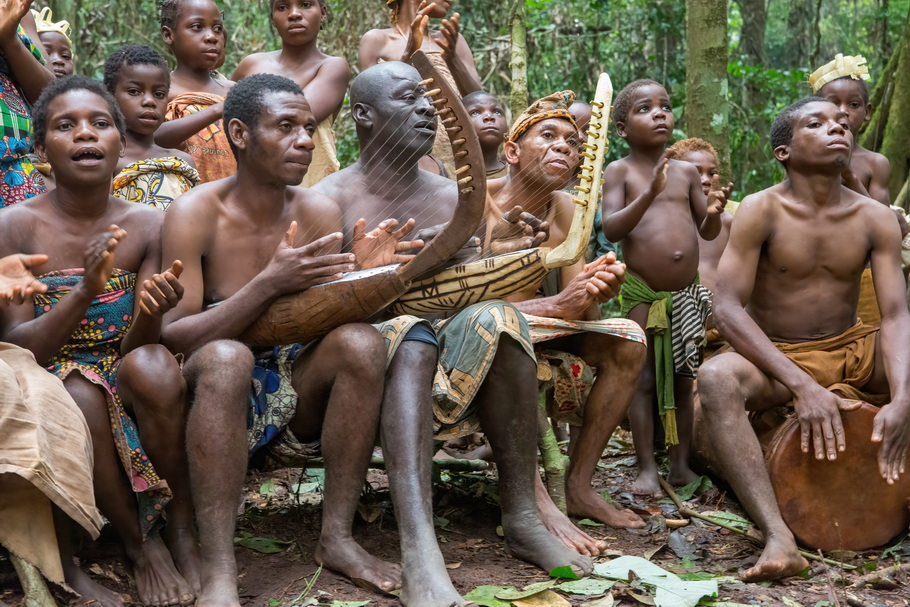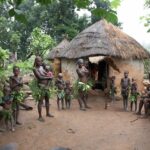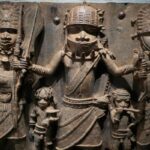In the heart of the Central African rainforest resides a small community known as the Baka Pygmies. These indigenous people, also referred to as the Bayaka, Bebayaka, Bibaya, or Babinga, have inhabited the southeastern rain forests of Cameroon, Republic of Congo, Gabon, and the Central African Republic for generations. Despite facing numerous challenges, the Baka people have preserved their ancient cultural heritage and traditional way of life.
Discovering the Baka Pygmies’ Lifestyle

The Baka people are renowned as the principal hunter-gatherers of the tropical rainforest in Northern Gabon. Living in temporary camps made of huts constructed from branches and large leaves, they rely on hunting, fishing, and gathering for sustenance. Men use poisoned arrows and spears for hunting, with the aid of dogs, while fishing plays a significant role in their culture. Women cultivate plants like plantains, cassavas, and bananas, and participate in beekeeping activities.
Socio-Economic Dynamics
In the socio-economic sphere, the Baka people face challenges in their interactions with neighboring Bantu villagers. They rely on trade with farmers for economic opportunities, exchanging goods like fruits and medicinal plants. This unequal relationship often leads to tensions, exacerbated by language barriers and disparities in political power. The Baka community operates without political leaders, following a communal decision-making process by consensus.
Preserving Cultural Traditions
Music holds a special place in Baka Pygmy life, with various forms of music and vocal singing playing essential roles. The intricate polyphonic music of the Baka Pygmies, characterized by communal improvisation, showcases a level of complexity that rivals European music from the 14th century. Their unique music has earned a spot on the Representative List of the Intangible Cultural Heritage of Humanity, highlighting its cultural significance.
Spiritual Beliefs and Rituals
The Baka Pygmies maintain a deep spiritual connection with nature, worshipping the forest spirit known as Jengi. Jengi is revered as a mediator between the Baka people and the Supreme Being, believed to punish transgressors and maintain harmony within the community. Rituals like Luma and Mbouamboua are essential for expressing gratitude, seeking protection, and honoring the deceased, reflecting the spiritual foundation of Baka culture.
Traditional Medicine Practices
Traditional Baka medicine incorporates herbal remedies passed down through generations. These remedies, often brewed or mashed from various plants, are used to treat illnesses and infertility. The efficacy of these remedies, while not scientifically proven, holds cultural significance within the community, attracting even non-Baka individuals seeking healing from their traditional healers.
Conclusion
The Baka Pygmies represent a resilient community deeply connected to the rainforest and their cultural traditions. Despite facing challenges like deforestation and unequal socio-economic relationships, the Baka people continue to preserve their way of life through music, spirituality, and traditional practices. Exploring the world of the Baka Pygmies offers a glimpse into a rich and vibrant cultural tapestry that deserves recognition and appreciation.
This blog post provides a glimpse into the fascinating world of the Baka Pygmies, highlighting their lifestyle, cultural practices, and spiritual beliefs. Embracing their unique traditions and preserving their cultural heritage is essential for celebrating the diversity of indigenous communities like the Baka Pygmies.


